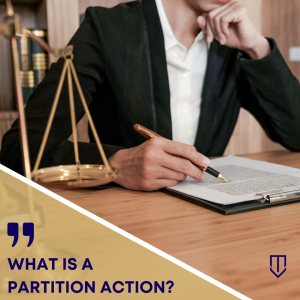 The appointment of a partition referee is one of the most important aspects of a Partition Action. A partition referee is a neutral third party that is appointed by and accountable to the court. The sole function of a partition referee is to assist the court in matters related to partition actions. (CCP § 873.510.) The purpose of this blog post is to address who can serve as a partition referee in a court-supervised partition sale.
The appointment of a partition referee is one of the most important aspects of a Partition Action. A partition referee is a neutral third party that is appointed by and accountable to the court. The sole function of a partition referee is to assist the court in matters related to partition actions. (CCP § 873.510.) The purpose of this blog post is to address who can serve as a partition referee in a court-supervised partition sale.
Generally, the law does not contain any requirements that a person must have in order to be eligible to serve as a Partition Referee. Instead, Code of Civil Procedure section 873.050 lists only individuals who cannot serve as partition referees. At Underwood Law Firm, our attorneys are more than familiar with partition actions and the complexities of appointing the right partition referee.
 California Partition Law Blog
California Partition Law Blog


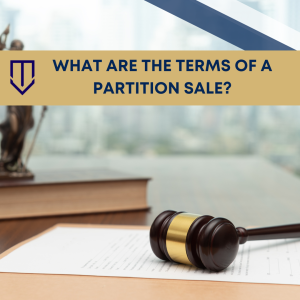 Even when a party finally secures a judgment of partition, the property itself must still be sold (or partitioned in another way). This raises a brand-new set of issues for litigants as they attempt to figure out the terms of sale, when the property should be sold, and, most importantly, the asking price.
Even when a party finally secures a judgment of partition, the property itself must still be sold (or partitioned in another way). This raises a brand-new set of issues for litigants as they attempt to figure out the terms of sale, when the property should be sold, and, most importantly, the asking price.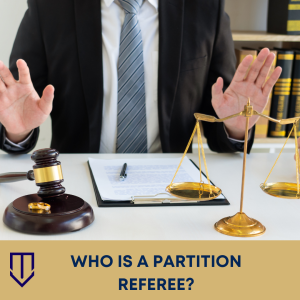 In most partition actions, the court appoints a partition referee in order to see that the property is sold or properly divided. The job of a Partition referee requires one to carry out several responsibilities and obligations. The purpose of this article is to provide some information on a partition referee’s duties and authority under the partition statutes.
In most partition actions, the court appoints a partition referee in order to see that the property is sold or properly divided. The job of a Partition referee requires one to carry out several responsibilities and obligations. The purpose of this article is to provide some information on a partition referee’s duties and authority under the partition statutes. 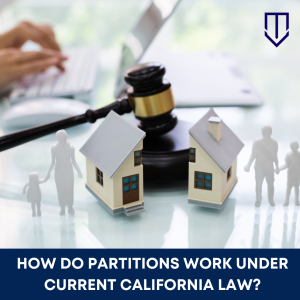 The Partition of Real Property Act (PRPA) is an exciting new development in
The Partition of Real Property Act (PRPA) is an exciting new development in 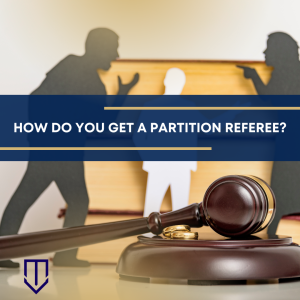 Partition litigation can be broadly categorized into two phases. In the first, the parties fight over whether there is a right to partition the subject property. If the court agrees that such a right exists, then the litigation shifts into the second phase, where the parties determine the manner and means by which the property is actually partitioned.
Partition litigation can be broadly categorized into two phases. In the first, the parties fight over whether there is a right to partition the subject property. If the court agrees that such a right exists, then the litigation shifts into the second phase, where the parties determine the manner and means by which the property is actually partitioned. Partitions by appraisal are a unique way to resolve a
Partitions by appraisal are a unique way to resolve a  Sir William Blackstone is a titan in the field of legal jurisprudence. His 1765 work, Commentaries on the Laws of England, is his most famous legal treatise, forming the backbone of common law analysis as modern lawyers understand it today. Without his efforts centuries ago, our conceptions of property, individual rights, and governmental authority would not be the same. His works remain cited even now in judicial decisions at all levels, including the Supreme Court of the United States.
Sir William Blackstone is a titan in the field of legal jurisprudence. His 1765 work, Commentaries on the Laws of England, is his most famous legal treatise, forming the backbone of common law analysis as modern lawyers understand it today. Without his efforts centuries ago, our conceptions of property, individual rights, and governmental authority would not be the same. His works remain cited even now in judicial decisions at all levels, including the Supreme Court of the United States.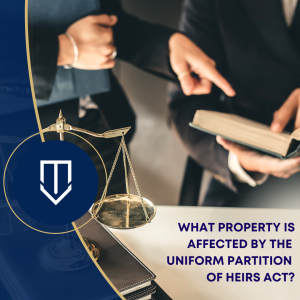
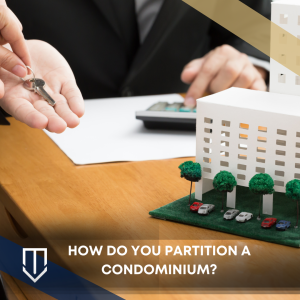 When co-owners of property decide they want to go their separate ways but cannot come to an agreement on a buyout or reimbursements, they can institute a
When co-owners of property decide they want to go their separate ways but cannot come to an agreement on a buyout or reimbursements, they can institute a